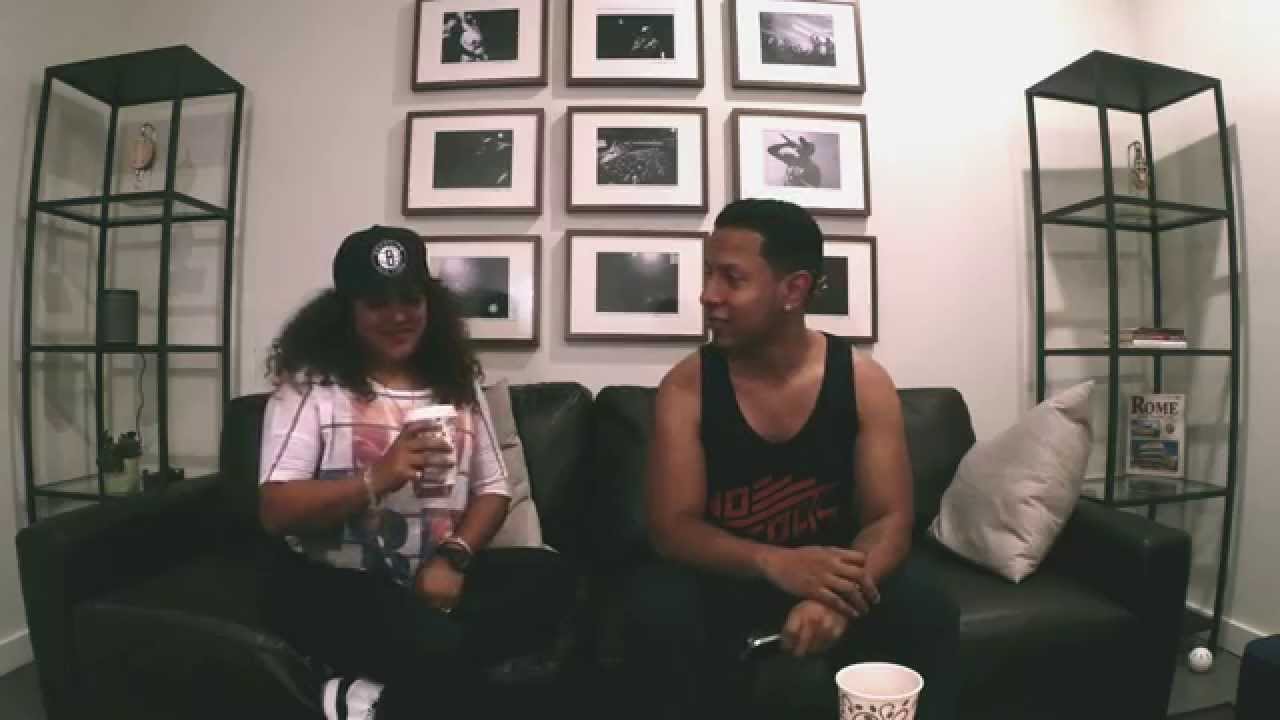Being that I’m quite cerebral about life, faith, and music amongst other topics, I thought it would be pertinent to start a series based around the life of being a music producer. I touched on some of the things that need to take place in the mind of a beginning producer in an earlier post. In this post I’ll talk about some of the necessary attributes that need developing and tools needed for the producer leaving that beginning stage. Moreover, producing in secular markets and producing in Christian markets has many differences and, disappointingly, many similarities.
I’ve done both, but will focus primarily on producing in Christian markets. I’ll also add that the life of a sample producer and that of a non-sample producer will vary in many ways. Being that I do both now, I can discuss the ups and downs of both. However, sampling is my first and true love, therefore I will focus primarily on being a sample producer. Mainly, because I believe it presents more challenges.
To be a sample producer takes an active willingness to develop an ear for good samples. The importance of this talent should not be underestimated. Many, however, underrate this ability and have no idea how important it is. This talent is either developed over time or just innate in some people. Either way, you have to spend a lot of time listening to music. Not just samples of old music but even the new music that uses samples. This way you know the sound that artists are looking for when they make music. To do this, you’ll have to realize that you can’t just listen to music the way you used to. Great samples produce a feeling in the listener, and it’s your job to recognize the samples that do this. I can’t tell you how to pick good samples, just that you need to make it a focus. When I was starting out, I prided myself for being willing to flip anything and make it a beat. This approach, while allowing me to practice sample-flipping techniques, made for some wack beats. I learned not every horn sample should be flipped and some samples will sound good at their regular pitch and tempo, but horrible when sped up.
Once you gain more experience with recognizing good, beat worthy, samples, you become aware that a good sample can come from anywhere and at anytime. I would advise downloading the Shazaam app. This wonderful app allows you to place your phone next to a speaker and it will tell you the name and artist of the song that’s playing. Shazaam has blessed me with samples I’d never have access to because I was out at a department store or in my car listening to the radio. Also, every once in a while, if you’re lucky, you’ll be out somewhere and a rare sample will come across the airwaves. This happens to me when I least expect it. By now, you should be realizing the more rare the sample is, the better. For a few reasons: First, rare samples are easier to clear for the artist. The more popular a song was, or is, the more the publisher will want for the clearance. Secondly, there’s less of a chance that you’ll be riding in your car listening to the radio ticked off because some popular artist’s new hot single is an amazing flip of a sample you thought no one had (this will happen to you no matter how rare you think your samples are so be prepared). Unfortunately, when this happens less people will want your rendition.
Finding samples can be quite difficult and can take hours upon hours of listening and searching to find just one sample worthy of your time. It really can feel like a treasure hunt. In light of this, most sample producers will have to control the urge to flip certain popular, yet old, songs. They may be easier to obtain, but most listeners wont be impressed that you flipped a Michael Jackson track or “Backstabbers” by the O’jays (if you’ve never wanted to flip this sample then either you’ve never heard it or you have no soul. I ‘m not sure which is sadder…). The longer you’re a sample producer, you’ll start to realize that there are unwritten rules to sampling, and here’s one of them: Never flip the first ten seconds of a popular track. I know what you’re thinking: “But, Angie Stone used this sample!!” Of course, there are exceptions but I’ll let you discover those on your own… I just do my best to stay away from popular songs completely. There are too few benefits to it.
Moreover, It might behoove you to purchase a record player that connects to your computer via usb connection. Old records are great sources of really good and rare samples. Hopefully, you’re in a city that has a record store. Records are fairly cheap but can add up if you’re like me and believe that any record could hold the sample to the hottest beat anybody’s ever heard (I’m somewhat of a passionate optimistic when it comes to my music). There are other sources for samples besides records, like Youtube, Amazon.com, and other music download sites. The problem with the other sources is you have to know what you’re looking for. Records are a good start because you don’t need this information. You just stroll in and pick up random records and hope you didn’t waste your money. The mystery of it all is pretty fun in spite of the small risks. Plus, if you don’t find any good samples on a record at least your record collection is growing. Everyone respects a dope record collection and you’ll be perceived as quite an interesting fellow and an authentic crate-digging sampler.
Once you have gotten into a good groove and are comfortable finding samples, you’ll start making beats and hopefully, they’re hot! Let’s assume that you took my advice in the earlier post and you’ve put together a council of people that love you enough to tell you the truth about your music. Once you’ve filtered a few beats through them and made the necessary changes you’re now ready to start selling beats, or are you?
You think you are but you’re most likely not, at least not if you want to do it the right way and do your best to avoid getting robbed blind. Before you start selling beats you need to understand the industry you’re about to be apart of. Read this quote from Tone Jones, a successful, full time CHH producer who is very giving with information: “I thought that I would just need to put my tracks online and they’d sell. Boy was I wrong! There is a lot more to being a successful producer than beats. It’s not even about marketing your beats. It’s about marketing YOU as a person. People have to know you. Otherwise, you get minimal results. Very few people buy from the door-to-door salesman lol! It takes a lot of work to do this and live off it”. In addition to this, I can’t tell you how many people start selling beats and have no idea how much they should charge. I speak this from experience. When I first started selling beats I was charging outrages prices, or tried to anyway. I was quickly brought down to reality. Surprisingly, most of the cases I hear about are producers who actually don’t charge enough for their beats. I heard a story of a young producer who gained some interest from a, then, well-established artist signed to a record label. The artist asked him how much he charged for beats and he told him $25/track. As you can imagine, the artist quickly jumped on as many of them as he could. What the producer would later discover is that each beat was worth sixteen times what he was charging for them!! This happens all too often. Another lesson to be learned here is not to expect the artist to tell you how much you should charge or tell you your beats are too cheap, but they will tell you they’re too expensive, even if they’re not (even Christians hustle).
Before you get your feet wet I would suggest you read what has been the most helpful book I’ve read along this journey: “Confessions of a Record Producer – How to survive the scams and shams of the music business” by Moses Avalon. Most will tell you to read “This business of music” by M. William Krasilovsky, but this book should be used more as a reference like a dictionary or encyclopedia. The confessions book is a great way to gain an understanding of the basic and complex principles of the shady music business.
And it is shady, very shady in fact. I met a producer who told me “you really want to do this? You should know that this industry is not for the faint of heart. It’s a dirty game with dirty people.” I have since found this to be true, even in CHH. Surprised? Don’t be. Be wise and know that anything that is run by men, regardless of their professed faith, has the potential to cheat and beguile you for the gain of those more experienced. This is why you have to know how you get paid, and how much you get paid, in any given situation. Whether it’s leasing beats to emerging artists or selling beats to established artists on record labels.
Don’t’ be afraid to reach out to other, more experienced, producers. You will come across some that are very guarded with information, but I’ve found that most of them are very willing to give advice and even tell you some of their little secrets. I’ve reached out to countless producers just to ask them how much they sell their beats for, how they handle the financial exchange, and what to do in a given situation. If you do this enough, eventually you will find a good mentor. Of course, this person should be further along in their career than you and you should be able to trust them with the fact that you don’t know everything. They should also be willing to impart wisdom and knowledge into you like you were the son they never had. They shouldn’t be judgmental and they should actually desire to see you succeed, even if it means you’ll be more successful than they are someday. The more knowledgeable you are about the music business, the more record labels, artists and producers will respect you. And respect is one of your most vital assets in this industry (remember this).
Well, I’ve given you some good tools and tips to help you along the way. I also hope I’m beginning to paint an accurate picture of what it’s like to be a hip-hop producer. For the sake of time we’ll have talk about some of the other issues in my next post. We haven’t even dived into the ills of actually selling beats and dealing with artists. That post could likely take up several pages. There are also contracts, work/life balance, and the extreme importance of building relationships, etc. This series could span several posts as I have a lot I’ve been blessed to learn through good and bad experiences. Make sure you look out for the rest. I’ll do my best to ensure there is less time between them ☺
God bless,
@jimmynatural000
tracks@jimmynatural.com
www.jimmynatural.com




